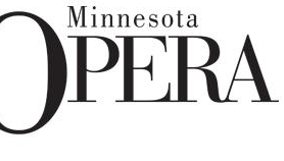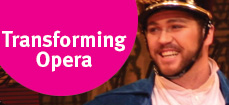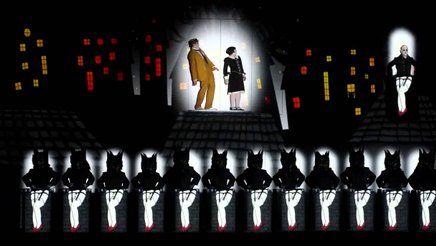Case study: Minnesota Opera
Branche: the Arts

Introduction
The Minnesota Opera created an affinity group called Out@theOpera. This group was “advertised” on the website as:
Out@theOpera is a group for our friends in the Gay, Lesbian, Bisexual, Transgender and Ally community. Join us for a peek inside the world of The Minnesota Opera with special behind-the-scenes access to the 2009-2010 season.
The programme
Daniel Zillmann, Communications & PR Managert, told me following: I believe it began in our 2007-2008 season. Our Audience Development Associate position had been eliminated - and with her a great deal of the knowledge of our grass roots efforts. Reaction was strong, but there are also a lot of activities in Minneapolis for the LGBT folks.
Our program, Out@theOpera sought to serve our LGBT patrons by providing them with 2-3 annual events that brought them closer to the artists and creative staff of our productions.
We had two events in the 09/10 season, both about 2½ weeks before the opening of a series. One event, linked to Bizet's Pearl Fishers, included some musical selections by our resident artists at a gay bar in the same neighborhood as our Opera Center is located - the stars of the show showed up to chat for a bit about the production and their background, one of them happened to be gay, Jesus Garcia, our Nadir. The other before Argento's Casanova's Homecoming, which didn't include a discussion, but most of the singers were there, as well as the production staff (some of whom were gay). A subsequent rehearsal was planned, but it was canceled at the last minute, so guests had a chance to mingle with the talent for longer.
We had a relationship with PFund, which is a local philanthropic non-profit specifically for the LGBT community in Minnesota. They had a private event with one of our artists, which was loosely under the guise of Out@theOpera.
We budgeted about USD 1,000 per event in the past, at 3 events per season. Currently we do not have a budget for Out@theOpera due to economy driven cutbacks. If we can find corporate or foundation funding, we will be able to continue programming.
Joining the group
Our narrow reach was through a small list we've acquired over the years, and through some advertising in Lavender Magazine. There are no membership fees. It's turning out to be a community engagement opportunity rather than money generating, as many people who come are already attending the opera.
At present there is no active acquisition program. People contact us and ask to be added. I've only had a few inquiries in the 4 months that I've been doing a lot of the Audience Development duties. But we've also not been driving to what little information we have online.
LGBT & A
We have no conditions for membership. We have labeled it is being for LGBT and A(llies). LGBTQ and other acronyms are not as recognizable to the older generations, I guess. And LGBT being the norm, I asked that they change everything to LGBTA when I moved over from Corporate America, which uses the acronym quite often to espouse a sense of inclusiveness.
When it's the product of a larger entity sometimes, you don't want to make it too exclusive a club. And it's my personal opinion that Allies are the greatest asset to the LGBT Civil Rights Movement. Without the inclusion of white people in the American Civil Rights Movement (a fact of which MLK was very cognizant), the movement wouldn't have become what it is today.
Creating a critical mass, at least in this country, is necessary on every issue of minority - and you can only do that by bringing as much of the majority onboard as you can. It's not to say that's right, but you can look at what happened in California as an example. Public opinion is one thing, but educating people and getting them involved is SO important. HRC with all of their dollars and resources were focusing on too many little issues (in my opinion) and not engaging the allies as well. If their model for fighting Prop 8 had been more like the smaller grass roots orgs, like NGLTF (the Task Force), I think we wouldn't have seen happen what did in CA. Again, these are my opinions and the philosophies built while in the middle of the fight my 4 years at Best Buy.
The effects
We have no way to calculate the success or the revenues, but we know it has not been a revenue generating outreach program. We originally thought it was a good audience development opportunity (i.e. bringing in new audience members) but have begun to realize that most people who show up to our events already have tickets, therefore it is likely a good opportunity to generate increased donations to the Opera. This is part of our discussion for next season.
We do not know how the participation of LGBT in the donorship program is, but this next season will be very telling. I believe the original organizers of Out@theOpera were a couple of major donors, who were really interested in our Artistic Director's dream of having such a program. I attended the first meeting at their home!
We are strongly contemplating continuation of the program, but a move from Marketing to another department is the detail in question. Due to limited resources of staff, this is likely a summer project of some kind for a Marketing intern.
We are very careful at keeping ALL of our patrons' information confidential... so the point of sensitivity if you're asking about anonymity is pretty moot. But we publicly advertise our events... both to the general public and our opera patrons.
How to distinguish our LGBT opera-goers?
It’s hard to do because, like the Minneapolis/St. Paul community, everyone tends to blend in here. Minneapolis or St. Paul do not have a gay “ghetto”. We do have a passion for social justice overall in Minnesota, the land of Senator Paul Wellstone - the most liberal US Senator in the country’s history. Perhaps there isn’t anything different except for the connection of being gay and having a higher propensity towards art and higher education. We do know that disposable income is higher among G&L folks. Which is why we’re thinking the program would be better at cultivating donors than generating new audience members.
The age demographic of Out@theOpera is higher than the average visitor too: we have a young professional group, TEMPO, of which I'm now in charge, which caters to all opera goers 21-39 years old. I'm attempting to get that organization to do more outreach to different minorities of their age demographic, of which LGBT is one of the many audiences I'm asking them to target. The price point for membership in TEMPO is a steal at only USD 40. Membership gets them USD 30 tickets to opening night performances, exclusive access to cast parties, educational events, etc. As for who I've seen attend Out@theOpera, it's generally gay men and a few lesbians outside the age demographic of TEMPO. They are subscribers and sometimes donors...who don't necessarily need a break on tickets.
We have several crossovers, but I'm actually hoping that if TEMPO can do a better job at reaching out to a wider and more diverse audience. Out@theOpera, if it continues as an institutional program, can become part of the work of the Development Department. This is a proposal I've not brought up to anyone at the Opera, but it's my plan for next season.”
At this moment (2016), the program does not exist anymore.
This case study is based on a personal interview in 2010 with Daniel Zillmann, Communications & PR Manager. Daniel has since moved to become Director of Press and Public Relations at The Santa Fe Opera.




© 2016 BRIGHT Marketing Solutions

